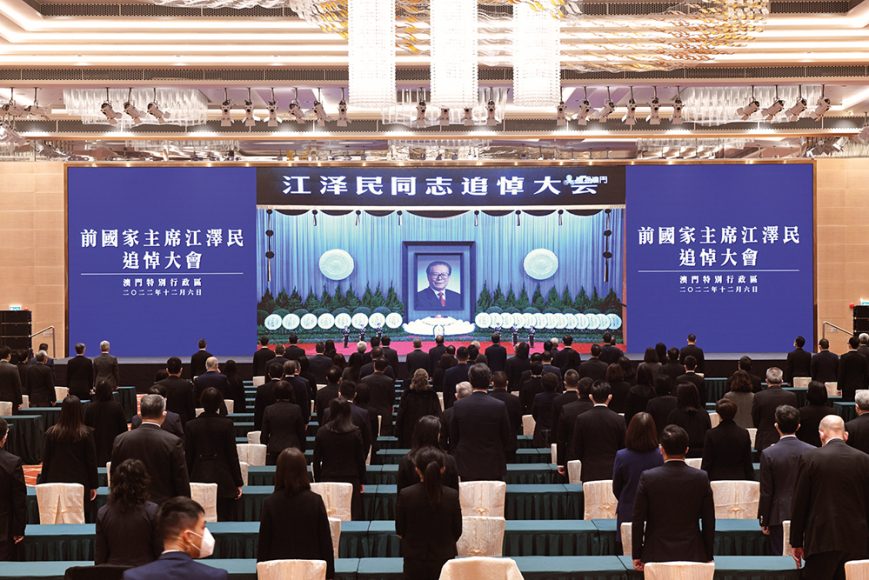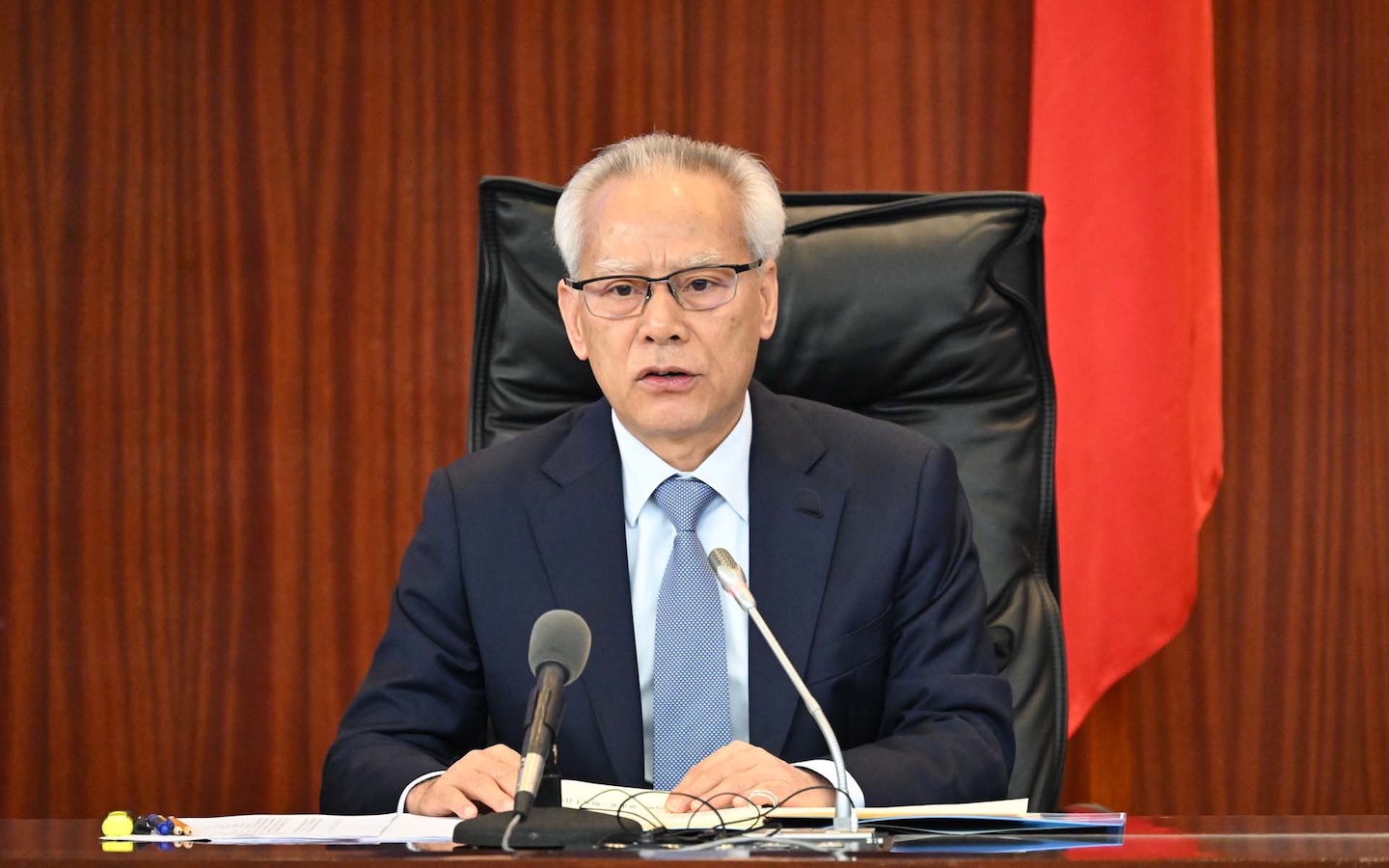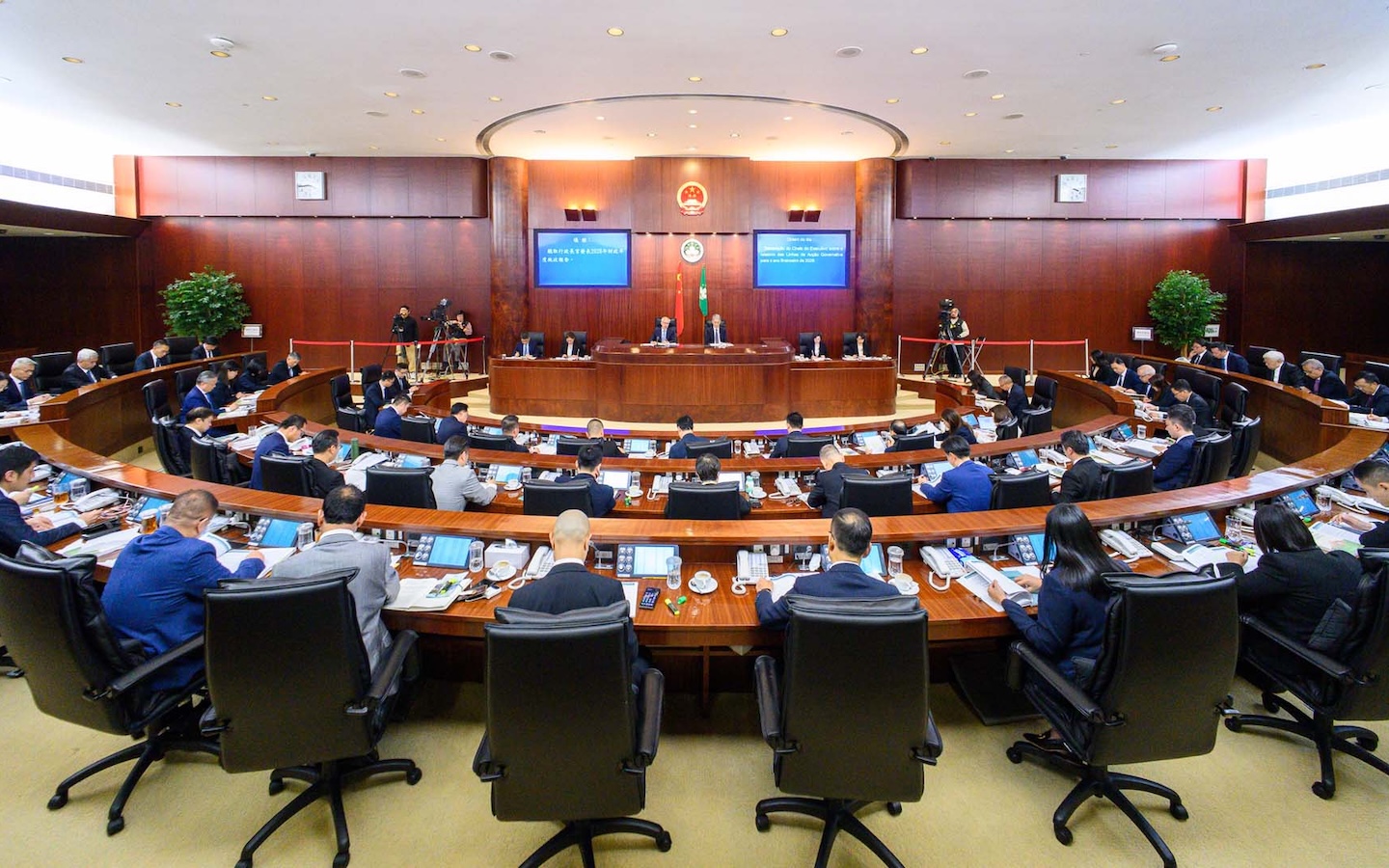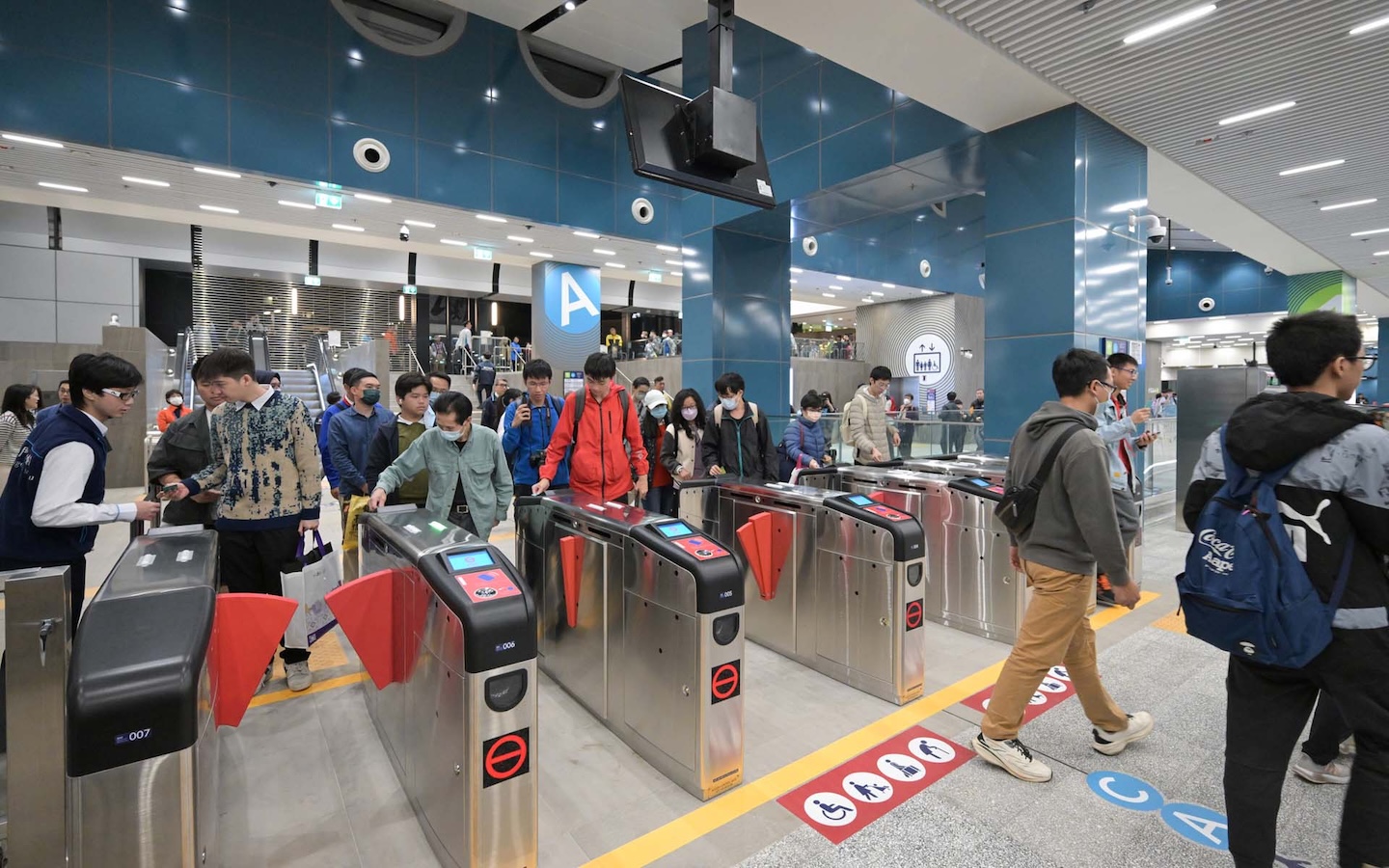Life in the city paused on the morning of 6 December, when people in Macao expressed their condolences and respect for the passing of former president Jiang Zemin. Residents from all walks of life stood in silence at 10 am, during Jiang’s state funeral in Beijing. The city’s national and regional flags had been flying at half-mast since 2 December.
Jiang was 96 when he passed away due to leukemia and multiple organ failure on 30 November, in Shanghai where he was cremated. Jiang served as the General Secretary of the Communist Party of China between 1989 and 2002, and was President of the People’s Republic of China from 1993 until his retirement in 2003.
The Liaison Office of the Central People’s Government in the Macao Special Administrative Region (MSAR) set up a memorial station at its headquarters, where people in Macao could mourn Jiang. The ceremony was also broadcasted live across television and radio channels by public broadcaster TDM.
During the broadcasted ceremony, Chief Executive Ho Iat Seng, principal officials of the local government, members of the Executive Council, lawmakers and representatives of the Judiciary stood to observe three minutes of silence to mark their respect for the former president. All government vehicles and vessels honked their horns for the same three minutes, a move followed by many private cars and motorcycles in the city.
In the streets, people could be observed standing in silence – while others gathered in restaurants and shops to watch the funeral proceedings on televisions.
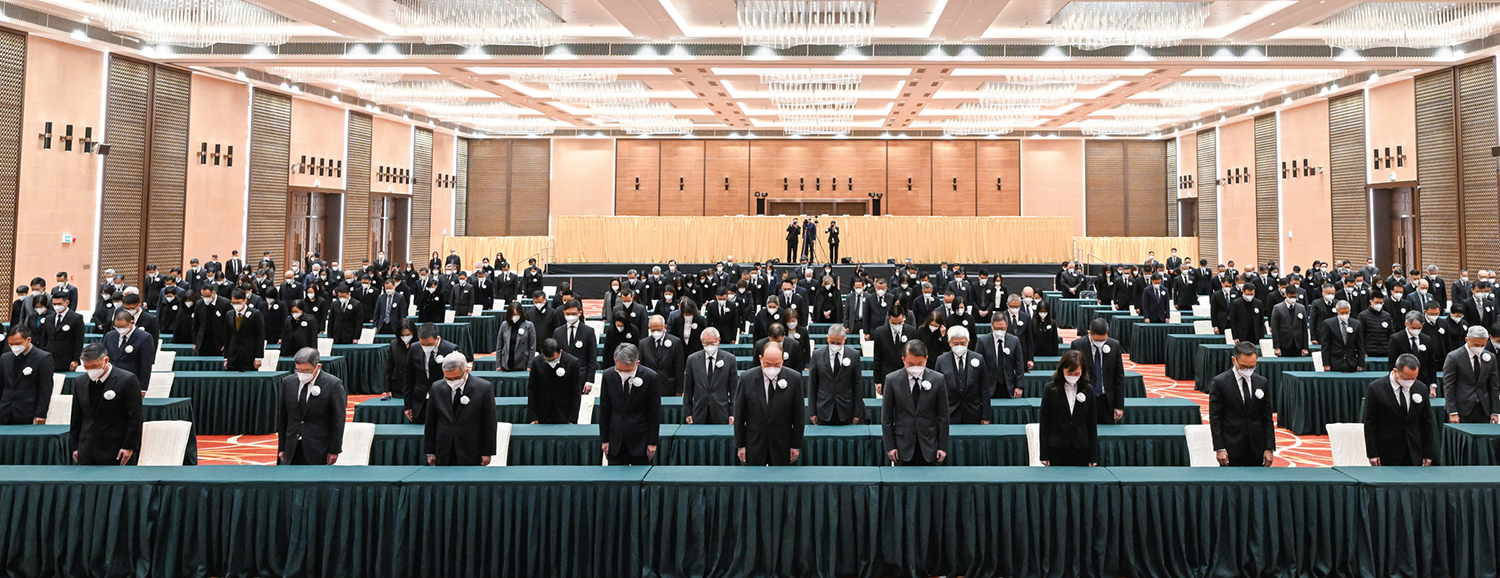
All entertainment and celebratory events were suspended during the funeral. Around 40,000 students and teachers in Macao observed a three-minute silent tribute.
Chief Executive Ho Iat Seng expressed deep condolences for the passing of Jiang and extended sincere condolences to the former president’s family, in an official statement on behalf of the government of the MSAR and himself.
Ho described Jiang as “an outstanding leader enjoying high prestige acknowledged by the whole Communist Party of China (CPC), a great Marxist, great proletarian revolutionary, statesman, military strategist and diplomat, a long-tested communist fighter, and an outstanding leader of the great cause of socialism with Chinese characteristics, and … the core of the Party’s third generation of central collective leadership and the principal founder of the Theory of Three Represents.”
He highlighted how concerned Jiang was about Macao’s development and the lives of its residents, noting that the former president visited Macao twice during his tenure. In December 1999, Jiang attended ceremonies marking Macao’s return to Chinese sovereignty, the establishment of the MSAR, and the swearing-in of its first government. Ho described this time as an “important historical moment” that left Macao’s people with an “indelible memory”.
Jiang’s second visit to the city was in December 2000, to mark the first anniversary of Macao’s ‘return to the motherland’. Ho recalled Jiang attending many activities and making friendly contact with locals whom, he said, will always remember the former president’s voice and smile.
“Now that he has passed away, we are truly saddened,” said Ho. “We will always remember him and miss his contributions to the country and the people.”
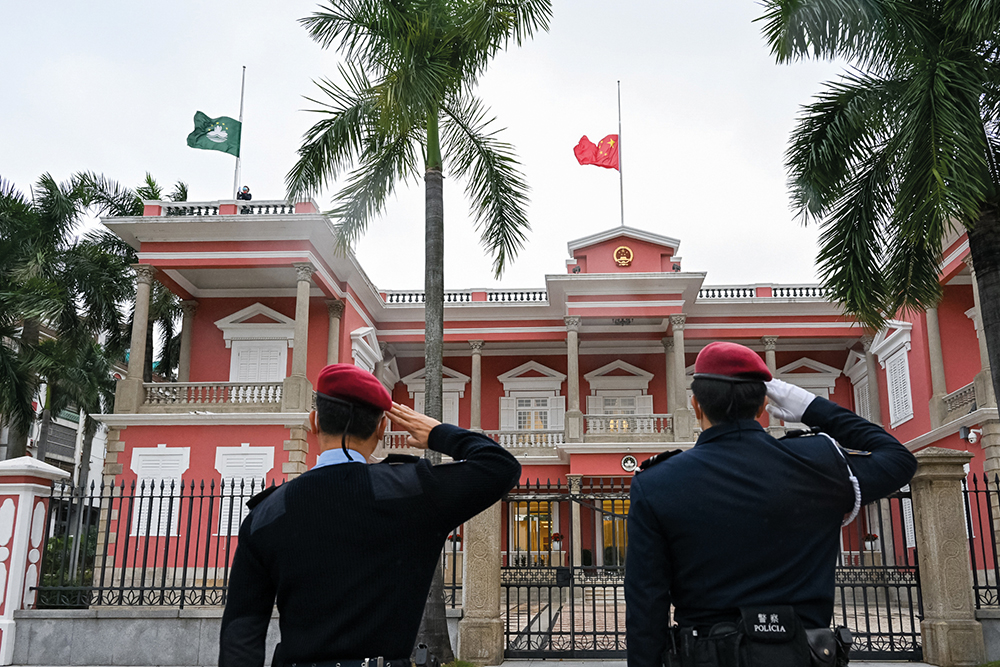
Two months before the Ceremony of the Transfer of Government of Macao to the People’s Republic of China in December 1999, Jiang Zemin visited Portugal to meet with then-late President Jorge Sampaio.
At the transfer ceremony in 1999, Jiang declared Macao had “entered a brand-new era in its development”. “Beginning from this moment, the friendship between the Chinese and Portuguese peoples and the amicable cooperation between China and Portugal will develop from a new starting point.”
On behalf of the Central Government and the people of all nationalities in China, Jiang extended “cordial greetings and good wishes to the Macao compatriots who are returning to the embrace of the motherland.”
“The Chinese Government has, in accordance with the great concept of ‘One Country, Two Systems’ initiated by Deng Xiaoping, successfully resolved the questions of Hong Kong and Macao,” he said.
“This marks significant progress made by the Chinese people in the course of accomplishing the great task of national reunification.
“After the return of Macao, the Chinese Government will unswervingly implement the policies of ‘One Country, Two Systems’, ‘Macao people administering Macao’ and a high degree of autonomy … Macao residents, irrespective of race or belief, will all be masters of this land, enjoying, as equals, the rights and freedoms guaranteed by law.”
The former president ended his 1999 speech with the hope “that the countries and regions with investment and trade interests in Macao will continue to work for the stability and development of Macao.”
